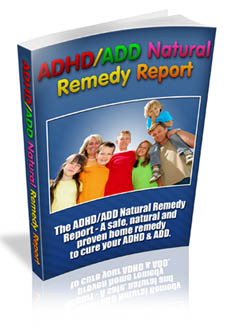Types Of Treatment For Adhd
Counseling, neurofeedback, and coaching may provide additional relief from your symptoms, even if you are not taking medication. While there is more scientific evidence for the effectiveness of prescription medication than for these alternative treatments, more research is being conducted.
Counseling
You may have tried improving your relationships or quality of life on your own and you may feel you still aren't making much progress. A professional (and neutral) third party may be able to help you figure out solutions to your ADD-related challenges. Sometimes it can be very helpful just to have someone listen to you without judging you. You may want to talk about how ADD has affected your life, including discussing any lingering feelings of anger or sadness.
Counseling can do more than just help you; it can also help your marital or long-term relationship and your relationship with your family. There are mental health clinicians who are licensed specifically in marriage and family counseling. There are other mental health clinicians who have received additional training in marriage and family therapy.
WHAT TECHNIQUES DO COUNSELORS USE?
Some mental health clinicians have training in cognitive behavioral therapy (CBT), a therapeutic approach. CBT can be useful in treating adult ADD. One benefit of CBT is that you can learn how your beliefs about a situation have an impact on how you respond to it. For example, if you were told in school that you weren't as smart as the other children, you may automatically tell yourself "I can't do this" when faced with a challenging task.
In CBT, you learn new self-talk that can make a difference in how you respond to and benefit from a situation. "I can't do this" becomes "I can complete this task successfully" or "I'll try my best."
Questions And Concerns About Counseling
Keep in mind that counseling is not a cure-all for your issues. Counseling is like a lot of other things in life - you get out of it what you put into it. If you feel that you do not "click" with a counselor, there are others to choose from. It can be normal to interview a few counselors before you sense a good fit. As you learned previously, when you are seeking a counselor, ask her how much experience she has in working with adult ADD clients. Also ask her for her opinion of the ADD diagnosis and how she feels about the use of medication as a treatment for ADD. Make sure that her viewpoint on both these topics aligns with yours.
If you have any questions about a counselor's therapeutic techniques or training, ask her. Also tell her if you are concerned about anything she has recommended or said during the session. Good counselors appreciate questions and feedback.
Neurofeedback
The ADD brain and non-ADD brain have different theta and beta brain wave patterns. The purpose of neurofeedback is to teach a person how to change her brain waves by controlling a computer game with her mind. Sensors are placed on your scalp and by each ear. The sensors are connected to a device that creates an electroencephalogram (EEG), a reading of your brain waves.
The therapist (or other person administering the neurofeedback) can tell how the brain is reacting by viewing the EEG. When someone with ADD has a decrease in theta waves and an increase in beta waves, that person can become more focused yet also more relaxed. It seems almost counterintuitive, but the more you teach your brain to relax, the more it can pay attention.
Neurofeedback treatments can be expensive, and full treatment requires several visits. In addition, there are limited studies that show its long-term effectiveness in treating ADD. However, in some studies, neurofeedback has been shown to be more effective than not receiving any treatment. Just like the SPECT scans that were mentioned, if you can afford this treatment and it works for you, that is wonderful. For many people, however, the chances of improvement do not outweigh the potential cost of the sessions.
Coaching
Coaching is like "counseling lite." In coaching sessions, you are learning how to establish goals, set priorities, and get organized rather than talking about your past and your feelings. Coaches can meet with you in person, and some conduct coaching sessions online. Some coaches may even come to your house or workplace so they can get a better sense of your life-style and the areas in which you need help.
Coaches can teach you coping skills and help you get your space organized. When you are working on a task, a coach can help you set manageable deadlines, and you can check in with your coach to report your progress. This makes you more accountable for how much work you are getting done.
There are some certification programs for ADD coaches although a certificate is not required. In addition, there are currently no state licenses for ADD coaches. When seeking a coach, ask for referrals and ask the coach about his specific experiences working with ADD clients. To get more information, you can check out Types Of Treatment For Adhd.

